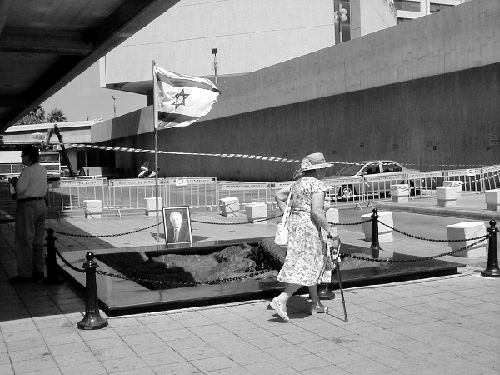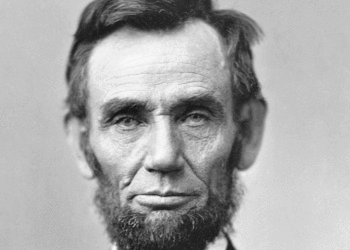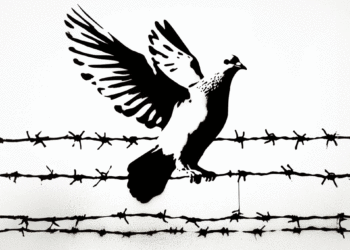The quest for Israeli-Palestinian peace was not interrupted by the Rabin assassination, nor was the late prime minister the personification of peace
Â
By MOSHE GIT
Â
A number of Jewish communal groups sponsored a program, “Remembering Yitzhak Rabin,” on Oct. 28 at Beth El Synagogue. Yaakov Katz, military correspondent for the Jerusalem Post, was scheduled to speak about “Rabin’s legacy” (a phrase coined in Israel, in Hebrew: moreshet Rabin), in commemoration of the anniversary of Yitzhak Rabin’s assassination, Nov. 4 (12 Cheshvan), 2005, at a rally in Tel Aviv.
Israel has experienced a large number of leaders and other personalities, many with contributions much greater than Rabin’s, yet the word “moreshet” is being applied to Rabin almost exclusively. Does the fact that, unlike the others, he was assassinated justify the inflation of his contribution?
I attended the rally at which Rabin was assassinated. I was less interested in what the politicians on the podium were saying than in the comments of the attendees, so I circulated amongst the crowd, trying to listen to their discussions.
Public opinion, both at the rally and afterwards, ran the gamut. On the periphery I noticed a man carrying a placard that read: Rabin is the Messiah. I asked him for an explanation, and he responded that the Messiah is supposed to bring peace, which is what Rabin is doing; therefore he must be the Messiah. The next day, I saw a plethora of posters all over Tel Aviv expressing grief and mourning the fallen prime minister.
In contrast, in Jerusalem, I noticed that such announcements were rather scant. I also wandered into the ultra-Orthodox quarter of Mea Shearim where I couldn’t find even a single allusion to Rabin’s assassination. I saw two men involved in a heated debate. I approached them; no, they weren’t talking about Rabin. I interrupted and asked if they had heard about the assassination, and why was there no indication of that in the entire quarter. Yes, they had heard; however, the assassination was of no consequence, according to them; therefore, there was no reason to get excited over it.
Noting the disparate views of the placard-bearer in Tel Aviv and the men arguing in Mea Shearim — and allowing that the assassination in itself is an abomination — in the final analysis, I believe the latter were right.
 Tourists and mourners visit the memorial to slain Prime Minister Yitzhak Rabin, erected on the spot where he was assassinated by a fellow Jew as he left a peace rally. (Photo: Mordecai Specktor)
Tourists and mourners visit the memorial to slain Prime Minister Yitzhak Rabin, erected on the spot where he was assassinated by a fellow Jew as he left a peace rally. (Photo: Mordecai Specktor)
Yitzhak Rabin and Shimon Peres were members of the same government. Like Tweedledum and Tweedledee, they both endorsed the agreement with the Palestinians worked out in Oslo, and they espoused the same policies. It was clear that Peres was going to replace the dead Rabin, which is what happened. Thus, the passing of Rabin was of no consequence with regard to the attainment of peace with the Palestinians.
Yet, when you hear today about moreshet Rabin, it is invariably associated with the idea that Rabin was the champion of peace, and that but for his assassination we would have peace. This is hogwash. The quest for peace was not interrupted by the assassination, nor was Rabin the personification of peace.
During Israel’s war of independence it was Rabin, as a young commander, who actively drove the Arab inhabitants of the Arab towns of Lydda and Ramle into exile. During the first intifada (Palestinian uprising), he ordered soldiers, according to some sources, to break the arms and legs of Palestinian protesters. Nor was Rabin a super military commander as he is being portrayed today.
The military historian Uri Milstein wrote that in 1948, when Rabin was in charge of leading a caravan of supplies to besieged Jerusalem through Arab fire, he got cold feet and disappeared. As the IDF’s chief of staff he fainted and became incapacitated when he faced the threats that culminated in the 1967 Six-Day War.
Nor was Rabin attuned to Judaism and Zionism. He casually assigned the Tomb of Rachel, a shrine with great emotional significance to the Jewish people, to Palestinian control, and only last minute protests changed this move.
After the 1973 Yom Kippur war, as a private citizen, he emphatically stated that short of a peace agreement, Israel shouldn’t return to Syria the additional Golan territory that it won during that war. Yet, soon after becoming prime minister, not only did he return that territory to Syria, but had Israel also give away additional territory (e.g., Kuneitra) that were Israel’s since the 1967 war. Syria has thus learned that aggression pays. Later, Rabin promised the U.S. that Israel would return the entire Golan Heights to Syria. This promise, which was leaked to Syria, continues to haunt Israel to this day.
All in all, the phrase moreshet Rabin, which is now espoused by the Israeli left, is based more on wishful thinking than on facts, and ought to be discarded. Rabin doesn’t have any unique and outstanding legacy to be hailed and emulated.
***
Moshe Git lives in Minnetonka.
(American Jewish World, 10.30.09)










 Tourists and mourners visit the memorial to slain Prime Minister Yitzhak Rabin, erected on the spot where he was assassinated by a fellow Jew as he left a peace rally. (Photo: Mordecai Specktor)
Tourists and mourners visit the memorial to slain Prime Minister Yitzhak Rabin, erected on the spot where he was assassinated by a fellow Jew as he left a peace rally. (Photo: Mordecai Specktor)









